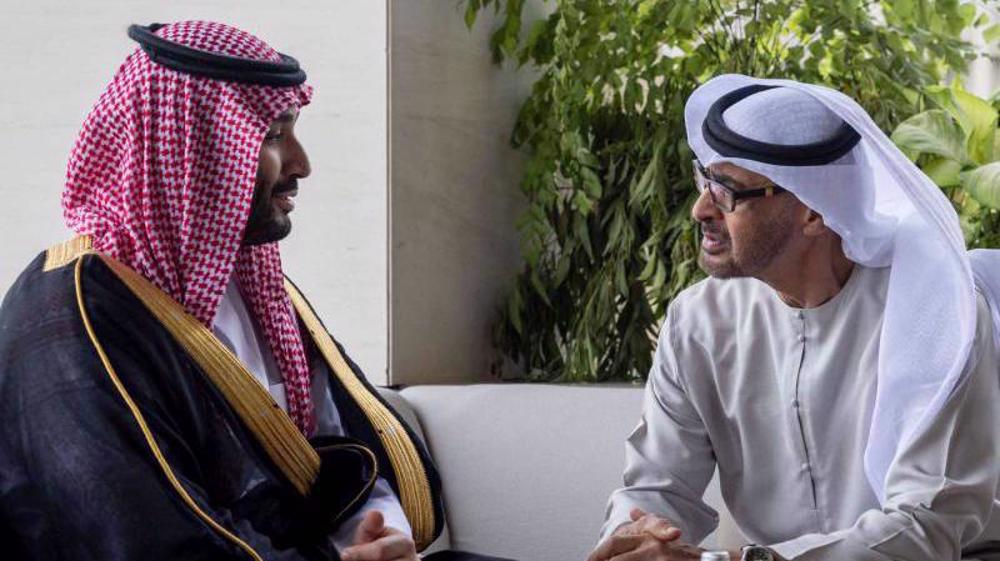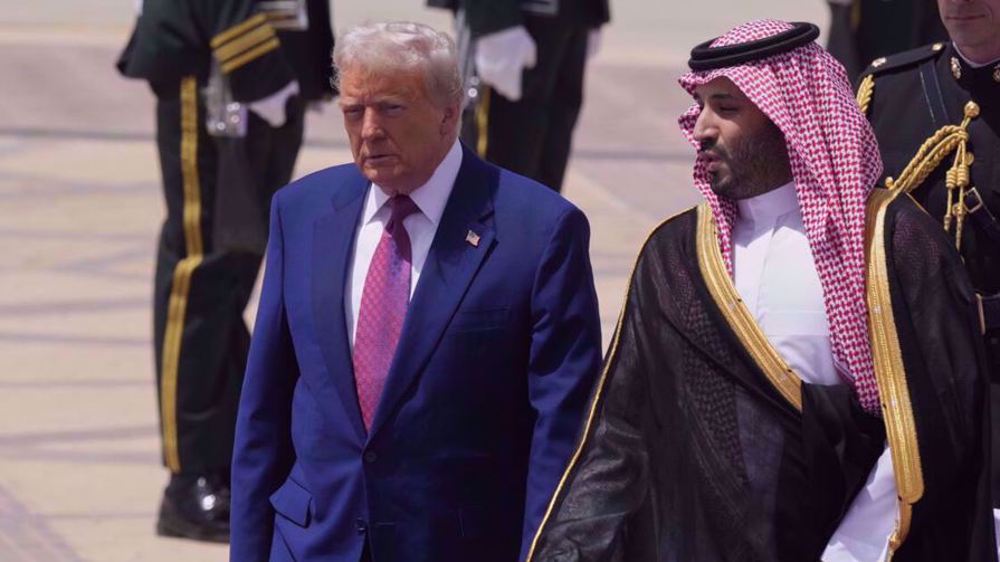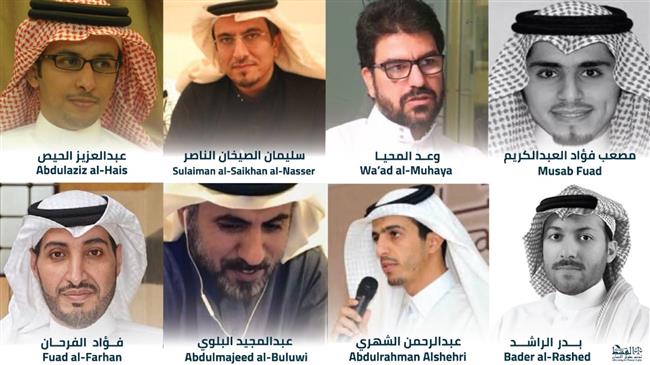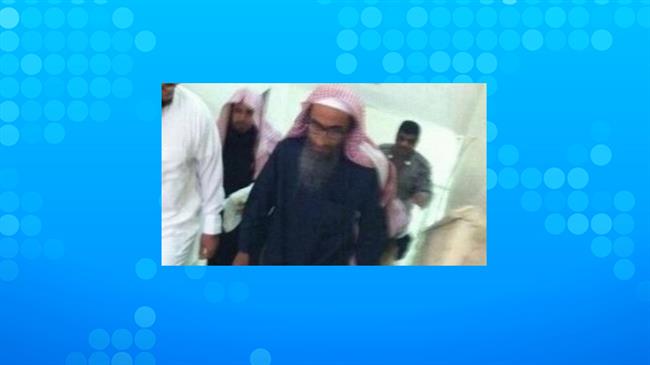Jordanians rally to demand release of loved ones being held in Saudi jails
Dozens of people have staged a rally in Jordan to demand the release of their relatives and loved ones currently being held in prisons and detention across Saudi Arabia.
The protesters converged outside the parliament building in the capital Amman on Tuesday, and held up pictures of their relatives – some of whom have been detained in Saudi prisons for about a year, Arabic-language Arabi21 online newspaper reported.
They argued that their children are being held in Saudi prisons without being charged, and that they have been arbitrarily arrested and some of them have been denied communication and family visits.
The report added that a number of lawmakers later spoke to the protesters about their efforts to push the government to resolve the issue.

MP Ibrahim Abul Sayyed said Prime Minister Omar Razzaz has promised to meet with the people within the next two days.
Later, Jordanian Foreign Minister Ayman Safadi said in an address to the parliament that his ministry attaches paramount importance to the matter.
He stressed that contacts with the Saudi side are continuing, but the detainees are under investigation in accordance with the Saudi law.
Back on September 12, Mustafa al-Assaf, a spokesman for the Reform parliamentary bloc – which represents the opposition in the Jordanian parliament, told Arabic-language al-Khaleej Online news website that Saudi Arabian officials had conducted an arrest campaign against 60 Jordanians, despite the fact that they have lived in the country for many years without a criminal record or causing any security concerns.
Earlier, former Jordanian parliamentarian Hind al-Fayez and journalist Helmi al-Asmar had broken the news of Saudi authorities arresting 60 Jordanian citizens, including pilgrims, without charge or trial being leaked.
Fayez said the families of the detainees have been staging protests in front of the Saudi embassy in the Jordanian capital city of Amman to demand the immediate release of their loved ones.
“The Reform parliamentary bloc has followed up the issue of Jordanian detainees in Saudi prisons, and addressed the issue to the Ministry of Foreign Affairs and Expatriates several times, and the response was that it communicates with Saudi authorities,” Assaf said.
He added that arrested Jordanian citizens were collecting donations for people in the Gaza Strip with the knowledge and approval of Saudi officials, and were not doing anything other than that.
On September 7, the Euro-Mediterranean for Human Rights Monitor, an independent, nonprofit rights organization, announced in a statement that dozens of Palestinians have forcibly disappeared in Saudi Arabia and their fates remain unknown.
The Swiss-based rights group noted that it was unable to give the exact number of the Palestinians who have forcibly disappeared in Saudi Arabia, but said it had the names of some 60 Palestinians who had met that fate.
The Palestinian community in Saudi Arabia believes that the real number of the abductees is far higher.
The Euro-Med said the Palestinians in question — among whom are students, residents, businessmen, and academics — have been completely isolated from the outside world without any indictments against them.
They have not been brought before public prosecution, nor allowed to communicate with their relatives or lawyers, it added.
Over the past two years, Saudi authorities have deported more than 100 Palestinians from the kingdom, mostly on charges of supporting Hamas resistance movement financially, politically or through social networking sites.
The Riyadh regime has imposed strict control over Palestinian funds in Saudi Arabia since the end of 2017.
All remittances of Palestinian expatriates are being tightly controlled, fearing that these funds could be diverted indirectly and through other countries to Hamas.
Money transfer offices are asking the Palestinians to bring forward strong arguments for conversion, and do not allow the ceiling of one’s money transfer to exceed $3,000.
Iran knows where Netanyahu convenes his meetings: Ex-IRGC chief
‘Law of jungle’: China says Israeli-US aggression against Iran must stop
Iran says committed to regional security; retaliatory attacks only target Israel, US assets
'Blatant war crime': Iran denounces US-Israel strikes on Gandhi hospital in Tehran
IRGC spox: 650 casualties for US military in two days as Iran missiles force aircraft carrier to fle
Tehran warns of false-flag operations, says Israel ‘undoubtedly’ seeking to widen war
New wave of attacks devastates key US base in Bahrain as Iran strikes back
Melania Trump chairs UN children's meeting as Iran buries kids killed in US-Israeli attack

















 This makes it easy to access the Press TV website
This makes it easy to access the Press TV website